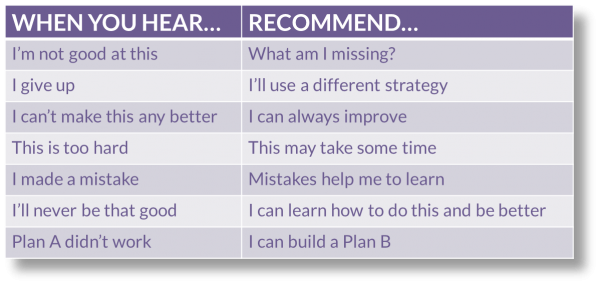
Support Kids’ Endeavors
The idea of getting support is interesting. What does it mean? What kind of support do your kids need? When do kids need it? We all need other people for a variety of reasons. We don’t live in isolation but for some reason we live in a society where we think we need to take what we get or do it on our own.
In my work with kids, I help them discover what they need from parents, coaches, and teachers. And most importantly, help them advocate for themselves to get the support they need.
Parents are doing the best they can
As a parent, you are doing the best you can and information can help bring about positive changes. After all, you are the primary identity role model for your kids. Not only will they do what you say but they will do what they see.
A child is shaped to see the world with either a fixed or growth mindset. In a fixed mindset, children believe that their abilities are set in stone. They believe they can’t be more athletic, intelligent, funny, or artistically inclined than what they are currently. Those with a fixed mindset are challenged by seeing the glass half empty. Things are black and white, negative, and a direct measure of their worth.
Children who are raised with a growth mindset understand that everything can be developed over time. They believe in the gray areas of life, are more positive and realistic, and realize that not winning is all about doing better the next time.

Kids take what they get
Kids are taught to listen to their elders and do what they say. It’s always been this way. Although 10-20 years ago autonomy would happen earlier in a child’s life than it does now. Most of the kids I work with are not developing autonomous skills in middle school or high school. These youth don’t know how to make decisions, understand what they need or want, nor how to communicate that. They struggle to advocate for themselves. They simply take what they get and think that’s what they deserve.
Help kids figure out what they need
In the growth mindset, it’s important to help kids figure out what they need. Instead of just giving your opinion or feedback, ask them what they need and what they want. I recommend using a lot of good open ended questions – questions that require thought and elaboration.
Part of my work is walking kids through this process to figure out what they want. Honestly, most have never had a chance to figure it out. They know what they don’t want and some try to communicate that but when you can only tell someone what you don’t want, generally nothing changes. Why? Because then a parent doesn’t have a job to do and without knowing your job you just do what you think is best. It becomes a complex system to figure out how to support.
Feedback
In addition to asking kids what they need and asking good open ended questions, help kids change the language they use.
For instance:

If you want to give feedback, use these guidelines:
- Focus on the situation, not the person
- Be specific with your feedback
- Comment on things which can be acted on
- Show how to improve
“Criticism complains; feedback explains” – anonymous
Kids doing it on their own
The outcome of not working together with your kids is that eventually they decide to go it alone without support because they feel like others don’t understand or can’t trust the adults around them. So many of the high school parents I talk to say, I’ve tried to help my child work on developing better mental skills but they don’t want to listen to me. Part of the reason for this is because they go very quickly from “taking what they get” to not trusting parents enough to listen. What they’ve heard does not resonate with them. The feedback is not warranted and they don’t appreciate it so they shut down.
Deeper communication
Another piece of this is a basic lack of communication. Parents tend to ask a lot about the basics and then tell kids what to do versus really having a deeper conversation or asking open ended questions.
In my practice and research, high school kids are shutting down more and blocking parents, coaches, and teachers out. They are tired of being told what to do but don’t have the autonomy to figure out what they want or need to do.
This is where change needs to occur. If we all start communicating differently with kids at a younger age (middle school), we build trust and open communication to help them figure out who they are and empower them to be a part of the process. This develops that growth mindset and where we continually through life discover new potential and true potential. As the old saying goes, “we can do whatever we set our mind to.”




